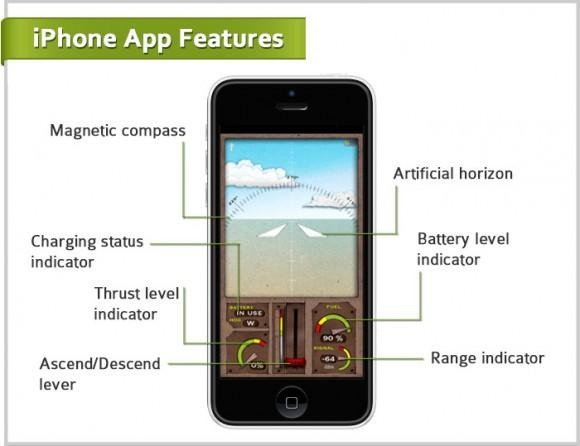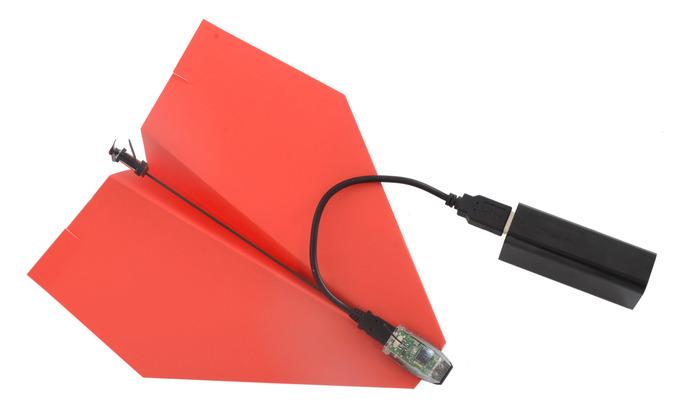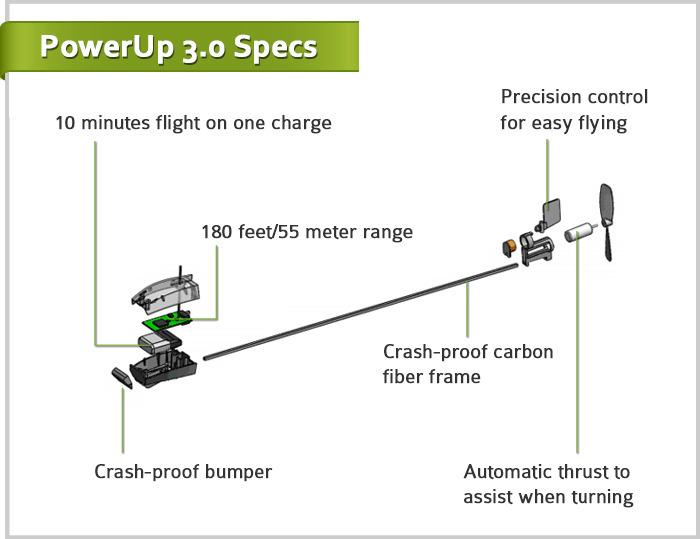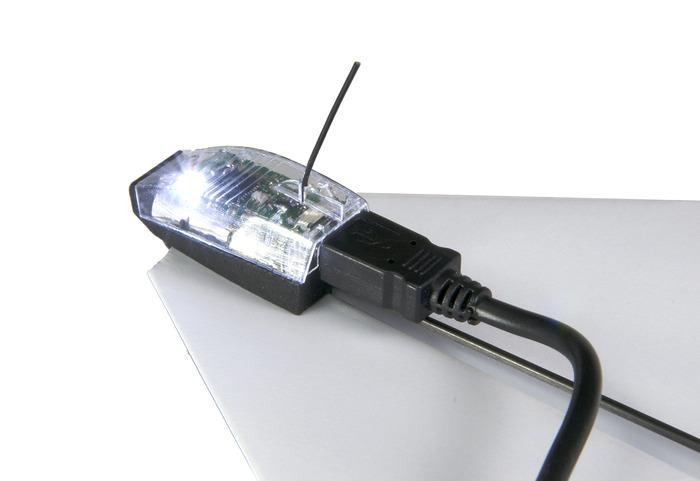PowerUp 3.0 lends power and control to homemade paper airplanes
New York-based industrial design manager and pilot Shai Goitein has given his PowerUp paper airplane motor a giant upgrade. First launched in 2011, the PowerUp module could turn a standard homemade paper airplane into a longer-flying, propeller-powered machine. But there was no accelerating, banking, climbing or descending, and it could only fly for 90 seconds. Thanks to Bluetooth 4.0 technology, Goitein's module can now do all this and more — and you can now control it with your smartphone.
It's called PowerUp 3.0. "Using state-of-the-art technology, PowerUp 3 turns your embarrassing paper plane into a lean, mean flying machine," jokes the Kickstarter video. Incidentally, the project utterly demolished its $50,000 Kickstarter goal by raising $335,000 as of this posting.
The 2.0 version was just a structural upgrade to the 1.0, adding a bumper on the front capacitor to better withstand the impact when (not if) the plane crashes. The 3.0 retains that bumper, and is made of carbon fiber for lightness and sturdiness. Goitein claims it's "super-durable and crash-proof."
There's a propeller and rudder on the back of the module for all flight controls (forward, up, down, left and right.) On the front is a Bluetooth 4.0 (Smart)-equipped chip for communicating with the smartphone app and a battery for up to 10 minutes of flight — a giant improvement over the original PowerUp's 90-second flight time. The spatial range is 180 feet from the phone. The module is charged with a micro USB cable.
The app will be available for iOS and Android. It looks uncomfortably similar to the app for the TobyRich RC smartplane we wrote about last week. It could be that the similarities between the two apps are based on a stripped-down standard of flight controls found elsewhere.

The propeller automatically accelerates when banking to help keep the plane from dropping out of the sky. Once again this sounds reminiscent of the "FlightAssist" technology found in the TobyRich plane. It would seem we're seeing the beginnings of a trend.
The PowerUp 3.0 will be available for somewhere in the range of $30 — not a bad markup from the $17.49 asking price of its relatively Stone Age progenitor, considering its new RC capabilities and low-energy Bluetooth battery advances.
SOURCE: TechCrunch



